Python Automation Tools
As software development shifts towards streamlining tasks, Python automation tools offer remarkable versatility. These tools, known for their simplicity, facilitate productivity leaps in various technical domains, including web scraping and data analysis.
Python automation tools refer to various software utilities specifically designed to automate repetitive tasks. Utilizing these tools, developers find it easier to speed up software production and reduce human intervention. For instance, frameworks like Ansible and Selenium offer automated task management and web testing capabilities.
Understanding Python automation tools has become a significant skill for modern developers. These tools not only simplify everyday tasks but also open doors for exciting opportunities in software development. A clear understanding of tools such as Scrapy, for web scraping, or Pandas, for data manipulation, allows developers to enhance their productivity while unlocking new potential in their coding capabilities.
Popular Python Automation Tools
Python automation tools offer an array of powerful functionalities, aiding developers in various tasks. Diving further into these remarkable resources, let’s explore some of the most renowned ones like Selenium Python, PyTest, and Robot Framework.
Selenium stands as a momentous tool in the Python automation landscape. It’s primarily known for its prowess in automated web testing, enabling developers to validate web applications against varying scenarios. Selenium offers bindings for Python, thus allowing the integration of Selenium’s functionalities with Python’s straightforward syntax. Consequently, this combination yields readable, efficient web automation scripts for quality assurance.
Shifting focus to the realm of testing, PyTest manifests as a formidable Python testing framework. Unlike its counterparts, PyTest resorts to a no-boilerplate philosophy, making test writing succinct and straightforward. Build robust test suites with PyTest’s first-class support for fixtures, enabling the creation of small test units for code verification. Additionally, its advanced assertion introspection clarifies the cause of failed tests, thus simplifying the debugging process. Embracing PyTest entails an augmented testing procedure with precise error logs and essential reduction in test maintenance.
Lastly, the Robot Framework encapsulates a broad range of automation needs, including web testing, desktop applications, and API testing. It embraces keyword-driven testing, facilitating the creation of readable and maintainable automated test cases. Aimed at simplifying the testing process, the Robot framework integrates seamlessly with other Python libraries. The ability to create complex automation cases with simple test syntax is what sets the Robot framework apart. Embracing this tool offers a unified testing experience, thereby bolstering the overall testing efficiency.
Practical Application Of Python Automation Tools
Python scripting carries immense potential in automating everyday tasks. Ensuring timely deliveries, Python scripts facilitate automatic email sending. Generated at a particular time every day, these automated emails aid in taking regular backups. Similarly, automation also aids in file organization. Python scripts sort and organize files in a directory, based on parameters such as file size, file type, and creation date. For example, operating systems benefit tremendously from these scripts, regular updates and maintenance tasks run efficiently through automated scripts.
Web scraping is another area where Python stands out. Particularly, BeautifulSoup, an excellent tool, reiterate this.  BeautifulSoup allows for easy extraction of data from HTML and XML documents. It parses and navigates web pages seamlessly, ensuring data siphoning without trouble. Its robustness stems primarily from the underlying Python strength, providing direct, precise results. For instance, market researchers often employ BeautifulSoup to pull out specific information from multiple websites simultaneously.
BeautifulSoup allows for easy extraction of data from HTML and XML documents. It parses and navigates web pages seamlessly, ensuring data siphoning without trouble. Its robustness stems primarily from the underlying Python strength, providing direct, precise results. For instance, market researchers often employ BeautifulSoup to pull out specific information from multiple websites simultaneously.
In the realm of data manipulation, Python, coupled with Pandas, proves to be a powerful duo. Pandas, a Python library, allows for efficient handling and analysis of structured data. Built on Numpy, it provides a two-dimensional data manipulation framework. Its capacity for data cleansing and processing is unparalleled. An instance is the handling of missing values in datasets, where Pandas identifies gaps and fills them using methods like bfill or ffill. In data-heavy domains, Pandas lessens human involvement, thereby minimizing errors and amplifying productivity.

